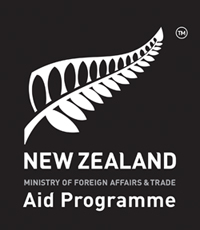Many of the most egregious examples of bad aid can be traced back to a simple problem: the people who potentially have the most to gain from aid work (the poor in developing countries) have next to no political voice in the capital cities of developed countries where high level decisions about aid are usually made. Meanwhile, the sorts of people who do tend to have a lot of influence in capital cities (lobbyists for various domestic interest groups) very rarely have the concerns of the World’s poor in mind when they are exerting influence1.
This doesn’t mean that all aid is inevitably bad: thanks to dedication of aid agency staff, the advocacy work of development NGOs, and the decency of some political actors, a lot of aid gets delivered well despite this problem. But the badness of a lot of bad aid can often be traced to donor countries giving aid which is intended to, as much as anything else, help their own domestic constituents.
The textbook example of this is US food aid. Purportedly given to help the hungry this aid is actually primarily given as a subsidy to agribusiness, and its impacts on the poor in developing countries is often negative in the long run.
Presumably, it has also been the influence of domestic interests that has prompted the New Zealand aid programme’s latest sojourn into the world of bad aid: the Young Business Leaders Initiative (YBLI).
The YBLI is a programme which will see young business leaders from ASEAN countries brought to New Zealand for 10 day visits during which they will be exposed to the wonders of the New Zealand business environment.
The stated aim of the initiative is to:
suppport [sic] the establishment of lasting and progressive trade and business relationships with New Zealand that advance the future of ASEAN-New Zealand relations.
This may well be a good aim. But it has nothing to do with aid.
The shoehorn used to wedge the YBLI into the aid programme is the ‘training’ that the visiting business leaders will receive while in New Zealand. Amongst considerable talk about the benefits for New Zealand, the webpage for the YBLI mentions building the young business leader’s skills and capacity.
There is nothing wrong with business training as a form of aid per se. Indeed, some very good recent studies (here and here) have found both that poor managerial capacity in developing country firms often significantly impedes these firms’ productivity and that training can remedy this. As the abstract from one of these studies states:
[Training in]…management practices had three main effects. First, it raised average productivity by 11 percent through improved quality and efficiency and reduced inventory. Second, it increased decentralization of decision making, as better information flow enabled owners to delegate more decisions to middle managers. Third, it increased the use of computers, necessitated by the data collection and analysis involved in modern management.
So potentially business training is an area where aid could do some good. The trouble with the YBLI programme being funded by aid money is that it is very hard to see how the programme could actually meaningfully be providing training – or at least how it could be providing training to those who need it. The visits are only 10 days long for a start (and it is extremely unlikely that all of this time will be spent in business training). But more than this, the YBLI is being targeted at existing business leaders. If they are already leaders in their fields (in the vibrant economies of South and South East Asia) is there really that much they can possibly learn from business men and women who work in the culturally and economically different context of New Zealand?
Finally, if the YBLI really is an aid programme, why isn’t it being delivered in-country? Surely it would be more cost effective to base the training in the recipient countries, where individual trainers could work with a much larger number of businesses at the same time, and where most of the costs associated with the trainings would be less.
As I said, the Young Business Leaders Initiative might be a good way of promoting New Zealand and New Zealand markets to the world, but it is not aid.
Once, not that long ago, one of the major strengths of New Zealand’s government aid programme was that it really was focused on genuine aid work. Promoting New Zealand’s interests was a job done elsewhere. To see this erode as it currently is ought to be a major concern for anyone who – like the vast majority of the New Zealand public whenever they have been surveyed – wants our aid to be focused on helping those people who really need the assistance.
Footnote 1: This point, or something very similar, has been made by a number of aid commentators including William Easterly and Jacob Svennson.
Terence Wood is a PhD student at ANU. Prior to commencing study he worked for the New Zealand government aid programme.






Hello Robert,
I see your argument has shifted from regulation to trade. Trade can, indeed, help with development. However, it seems exceptionally unlikely to me that the linkages created by the small number of visits promoted under the scheme will have an influence on poverty that is significant in any way when compared do that which can be done through market forces alone in the trade arena.
With regards to NZ growth rates. The reforms commenced in the mid 1980s. Economic growth stagnated for about 10 years followed by a brief period of improvement (mid-late 1990s), followed by further recession. Recovery really kicked off in the new millennium under the rule of a government that was decried as socialist by its opponents. Even then growth rates achieved have been less than those of many Asian economies. Including ones that score much lower on ease of business rankings. Moreover, our economy while performing alright hasn’t done any better than it did in the 1960s (for example) under a much more regulated regime.
This isn’t to say that regulation doesn’t matter – but clearly it isn’t the only thing that does. Otherwise the New Zealand story would be quite different.
Cheers
Terence
Hello Robert,
Thank you for your comment and apologies in advance for my limited reply I don’t have good internet access at present.
You state:”It is not clear what benefit you are asserting NZ businesses get from this program.”
The anticipated benefit is clear enough. It is in the quote I used in my post and on the webpage I linked to. To reiterate, the desired benefit is “the establishment of lasting and progressive trade and business relationships”. This, if it works, will benefit New Zealand business. It may even benefit New Zealanders more broadly. Perhaps, even, it will be one of those relatively rare moments where the government can use its material resources in a planned manner to generate economic outcomes that are better than those produced by markets alone. Perhaps. But these are benefits first and foremost for New Zealand – they aren’t aid.
As for the potential for visiting business people to learn about NZ’s light touch regulations and then take this information back to their own countries, subsequently enhancing economic growth which in turn helps the poor. This is unlikely for the following reasons.
1. It does not seem clear that the visiting business people will be taught anything about the NZ regulatory environment. They are being brought over to visit businesses not government departments.
2. It is unlikely that the views of a few business people could really bring about regulatory reform – political economy is much more important here than what a few people might learn during a 10 day jaunt.
3. It is unclear that New Zealand really has a regime worth emulating. In the immediate aftermath of our adoption of it, NZ’s economy stagnated for more than 10 years. Since then it’s performance has been average at best (contrast this with most Asian economies, which have boomed).
Cheers
Terence